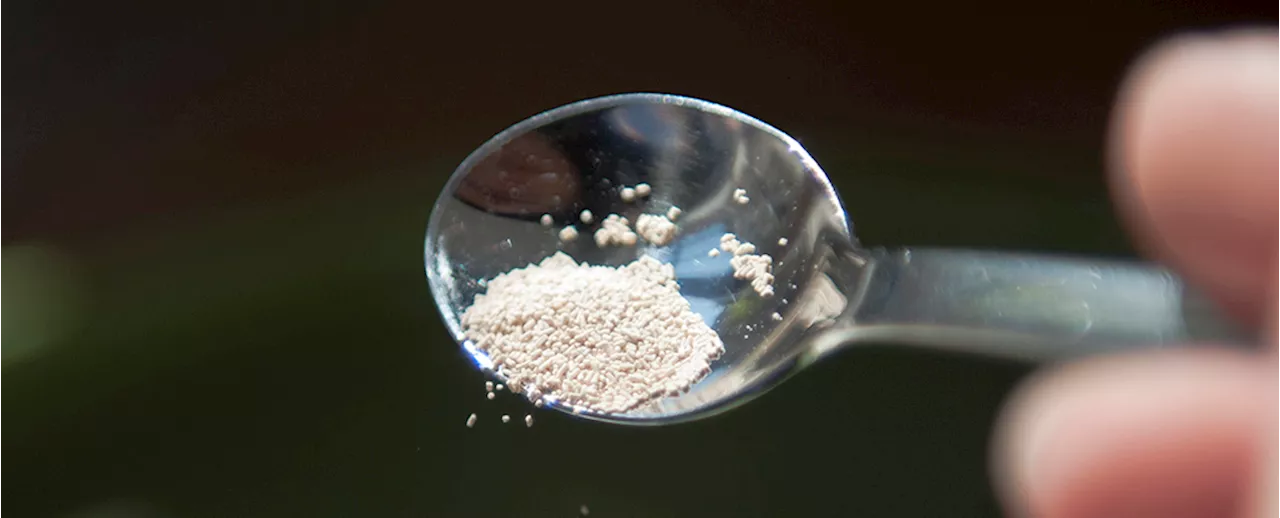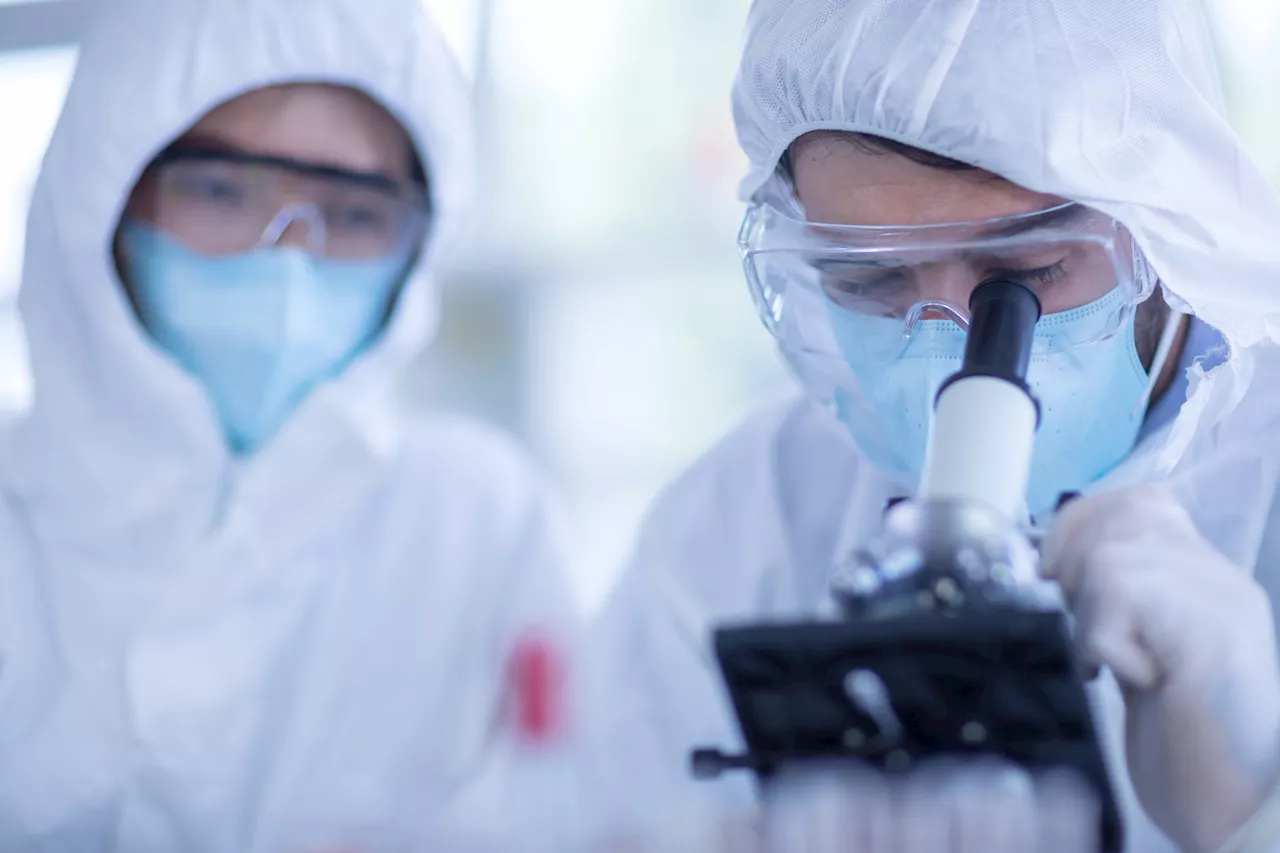Synthetic biologists have developed a prototype for an innovative biosensor that can detect rare earth elements and be modified for a range of other applications.
QUT synthetic biologists have developed a prototype for an innovative biosensor that can detect rare earth elements and be modified for a range of other applications.
Along with Professor Alexandrov, the international research team involved QUT researchers Dr Zhong Guo, Patricia Walden and Dr Zhenling Cui, in collaboration with researchers from CSIRO Advanced Engineering Biology Future Science Platform and Clarkson University ., the team describe engineering a hybrid protein, or"chimera," by combining a lanthanide-binding protein, LanM, with an antibiotic degrading enzyme called beta-lactamase.
"This work opens up exciting possibilities for using biology to detect and recover rare earth metals," Professor Alexandrov said. "We also want to explore using the tool to engineer microbes that can directly extract rare earth minerals from ocean water," Professor Alexandrov said.
Organic Chemistry Biochemistry Engineering And Construction Earth Science Geology Environmental Issues Earthquakes
United States Latest News, United States Headlines
Similar News:You can also read news stories similar to this one that we have collected from other news sources.
 Synthetic Biologists Complete Final Chromosome of Synthetic YeastScientists at Macquarie University in Australia have successfully assembled the final chromosome of a synthetic yeast, marking a major milestone in synthetic biology. This achievement paves the way for potentially recoding living yeast cells and opens up new possibilities for biomanufacturing.
Synthetic Biologists Complete Final Chromosome of Synthetic YeastScientists at Macquarie University in Australia have successfully assembled the final chromosome of a synthetic yeast, marking a major milestone in synthetic biology. This achievement paves the way for potentially recoding living yeast cells and opens up new possibilities for biomanufacturing.
Read more »
 Scientists Assemble Final Chromosome in Synthetic Yeast, Marking Major Step Towards Creating Lab-Grown LifeResearchers at Macquarie University have successfully built the complete synthetic chromosome for a yeast organism, a milestone in the quest to create synthetic life in the lab. This achievement, the first of its kind for a eukaryotic genome, opens possibilities for developing disease-resistant foodstuffs and exploring applications in sustainable materials and medicine.
Scientists Assemble Final Chromosome in Synthetic Yeast, Marking Major Step Towards Creating Lab-Grown LifeResearchers at Macquarie University have successfully built the complete synthetic chromosome for a yeast organism, a milestone in the quest to create synthetic life in the lab. This achievement, the first of its kind for a eukaryotic genome, opens possibilities for developing disease-resistant foodstuffs and exploring applications in sustainable materials and medicine.
Read more »
 Scientists 'mimic real biological processes' using synthetic neuronsA new collaboration has unlocked new potential for the field by creating a novel high-performance organic electrochemical neuron that responds within the frequency range of human neurons.
Scientists 'mimic real biological processes' using synthetic neuronsA new collaboration has unlocked new potential for the field by creating a novel high-performance organic electrochemical neuron that responds within the frequency range of human neurons.
Read more »
 Tianjin University Invites Overseas Young Scientists for 2025 Excellent Young Scientists Fund ProgramThe National Natural Science Foundation of China (NSFC) Excellent Young Scientist Fund (Overseas) program, hosted by Tianjin University, seeks to attract outstanding young scholars from overseas to contribute to China's scientific and technological advancement.
Tianjin University Invites Overseas Young Scientists for 2025 Excellent Young Scientists Fund ProgramThe National Natural Science Foundation of China (NSFC) Excellent Young Scientist Fund (Overseas) program, hosted by Tianjin University, seeks to attract outstanding young scholars from overseas to contribute to China's scientific and technological advancement.
Read more »
 Why Star Trek: Legacy Should Bring Back The Alliance of Synthetic LifeThe proposed Star Trek: Legacy spin-off needs new villains after the Borg's neutralization in Star Trek: Picard season 3. The Alliance of Synthetic Life from Picard season 1 offers a compelling and unexplored threat with the potential to create exciting conflicts for Captain Seven of Nine and her crew.
Why Star Trek: Legacy Should Bring Back The Alliance of Synthetic LifeThe proposed Star Trek: Legacy spin-off needs new villains after the Borg's neutralization in Star Trek: Picard season 3. The Alliance of Synthetic Life from Picard season 1 offers a compelling and unexplored threat with the potential to create exciting conflicts for Captain Seven of Nine and her crew.
Read more »
 Final synthetic yeast chromosome unlocks new era in biotechnologyScientists have completed construction of the final chromosome in the worlds' first synthetic yeast genome following more than a decade of work, opening new possibilities for creating resilient, engineered organisms.
Final synthetic yeast chromosome unlocks new era in biotechnologyScientists have completed construction of the final chromosome in the worlds' first synthetic yeast genome following more than a decade of work, opening new possibilities for creating resilient, engineered organisms.
Read more »
